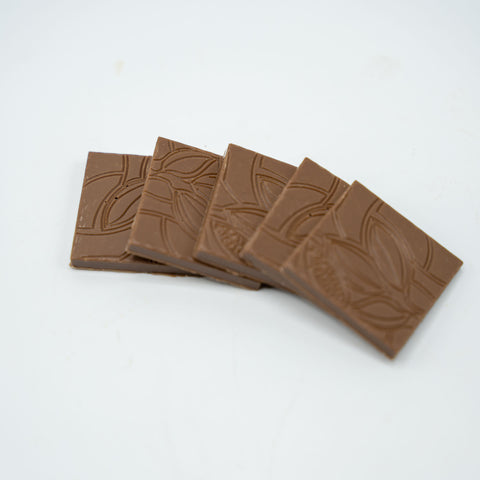What Makes Us Different
Where does our produce come from?
Every decision we make has some sort of an effect on the world and beings around us. Wouldn't you want to encourage positive change and growth whenever possible?
The main thought on my mind with everything related to covid-19 and food shortages was how to eliminate Le Chocolatier's reliance on external imports (when and where possible). Not only would this reduce the level of uncertainty with procuring certain ingredients, it would also reduce the carbon footprint we had at that time.
This summer, with Canadian farmers and growers working hard to meet demands across our nation while battling unpredictable weather anomalies such as droughts in Alberta and heavy unrelenting rainfall in BC, we chose to pick their produce over commercially produced internationally sourced options.
We began working with one group in particular: Souto Farms, a family based group who operates their own farms between Alberta and BC - each one growing specific produce to the region it is situated in.
For some back story to explain why this switch was so important: the normal option for all hotels, restaurants and food-based businesses across Canada is to purchase frozen fruit purees which are strained, cooked, packaged using plastic containers in 1kg portions and flown to us from most commonly Europe. These brands are high quality and consistent in their sugar content, measured in degrees brix, perfect for those who make sorbets or anything that requires a consistent sugar to water content. These products are wonderful, especially with how much time you save as a pastry chef no longer needing to spend the time cooking, blending and sometimes (in the case of raspberries with hundreds of seeds) straining by hand tens of litres of fruit purees. Imagine how much of your time this takes, especially when your average pastry kitchen uses countless varieties of purees for applications ranging from mousses, jellys, ganaches, coulis, cakes and baked goods, sorbets.. I could go on.
However, they must be transported from their place of cultivation to the factory where they are processed. Packed into the plastic tubs, shipped to a distributor, flown via airplane over the ocean, distributed to wholesale purchasers, sold and transported to the many customers who use them. Then there's the plastic containers which could be recycled but this is another step that requires electricity and resources.
My thoughts: why not eliminate dependence on this entirely? I have the option now considering as degrees brix does not affect my chocolates on the scale that a sorbet maker needs that consistency of sugar. Making purees fresh from organic fruit, grown in Canada by Canadians, transported at the most from our neighbouring province of BC is an option to me. Other businesses may not see yet how to make the switch, but right now I can and do. The only plastic I use is the food safe re-usable litre containers to store them in the freezer. The only cost that I must take on is the demand of my own time to process all of the fruit, straining it, preparing it for freezing storage, storing it in large quantities. In terms of cost per kilogram I save money making it myself on top of all of the other beneficial aspects of this choice and change.
An example of these savings is with the blueberry puree, which rings in at $28 per kilogram. Making it myself and buying blueberries in bulk my average cost was $8-$13 per kilogram. *Not including the cost of my time/labour.
The list of fruit collected this summer and made into purees for the shop is as follows:
- Blueberries from BC
- Strawberries from Alberta
- Peaches from BC
- Nectarines from BC
- Apricots from BC
- Apples from BC
- Pears from BC
- Raspberries from BC
- Plums from BC
- Cherries from BC
All of these fruits either have already appeared in the shop in the form of fillings for our chocolate and truffle selection, or will appear over the course of the cold harvest-less months.
As a footnote I need to add that I still use certain purees such as passionfruit, mango and pineapple. Considering we do not grow these in Canada, sourcing them from outside our borders is necessity. With these chocolate flavours being highly popular I will always do my best to purchase the whole fruits themselves at local stores whenever possible and make my own purees to at least eliminate some of the transportation and external processing as well as plastic usage.
The people and personalities behind all that we create and curate at Le Chocolatier care deeply about what our choices mean for the rest of the world, our community health, what our customers eat and place trust in us with providing them with only the best and fresh, always preservative free, whole food, naturally delicious chocolates!
That is our promise to you.

